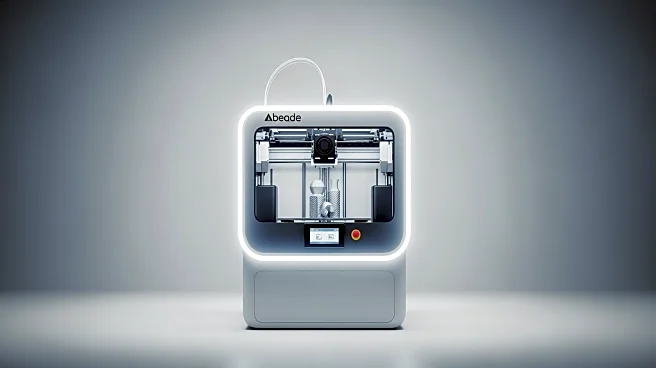What's Happening?
Stratasys has announced a series of innovations across its FDM, SAF, P3 DLP, and software platforms, aimed at enhancing additive manufacturing productivity. The company introduced new materials, faster print capabilities, and advanced software to help
manufacturers reduce production time and improve part quality. Key updates include the CoatReady print mode for ULTEM 9085 resin, which improves surface quality and reduces manual finishing time, and the Nylon 12CF T40 Tip for Fortus 450mc, which nearly doubles build speed for large parts. These advancements reflect Stratasys' commitment to driving innovation across aerospace, automotive, industrial, and consumer markets.
Why It's Important?
Stratasys' innovations in 3D printing technology are significant for industries seeking to streamline production processes and enhance product quality. The new materials and software tools offer manufacturers the ability to tackle complex applications more efficiently, potentially reducing costs and increasing competitiveness. As additive manufacturing becomes more integral to sectors like aerospace and automotive, these advancements could lead to faster prototyping, reduced waste, and improved supply chain agility. Stratasys' focus on operational excellence positions it as a leader in the global shift towards additive manufacturing.
What's Next?
The new solutions will be showcased at Formnext 2025, providing an opportunity for industry stakeholders to explore the latest advancements in 3D printing technology. Stratasys may continue to expand its materials portfolio and software capabilities, further enhancing its offerings for various industries. The company's ongoing commitment to innovation suggests potential collaborations with manufacturers seeking to integrate additive manufacturing into their operations. As the technology evolves, Stratasys could play a key role in shaping the future of manufacturing.
Beyond the Headlines
The advancements in 3D printing technology raise questions about the environmental impact of additive manufacturing, particularly in terms of material usage and energy consumption. Stratasys' focus on sustainable solutions, such as the ABS TrueRefill, highlights the industry's efforts to address these concerns. The integration of smart software tools also points to the growing importance of digitalization in manufacturing, potentially leading to shifts in workforce skills and training requirements.















